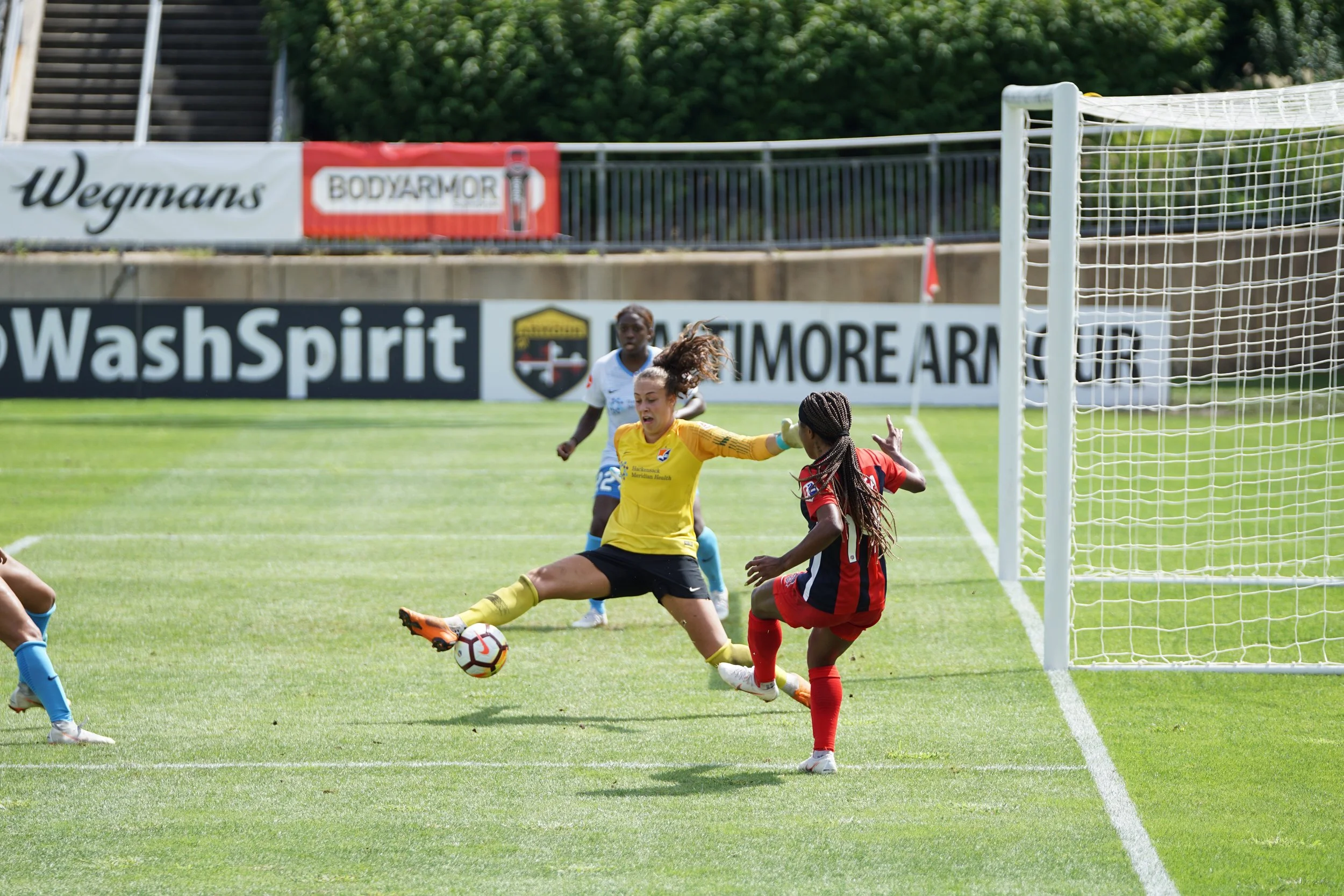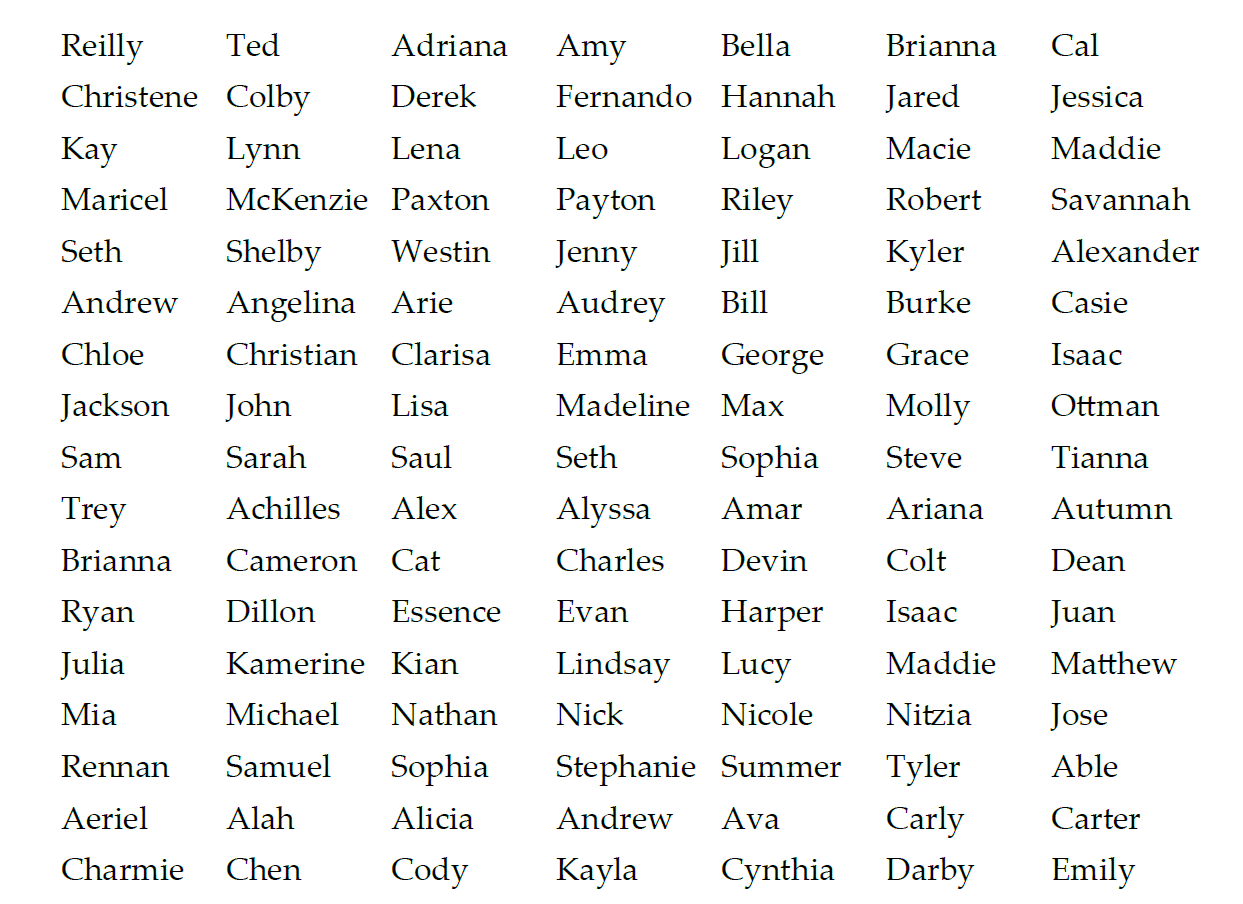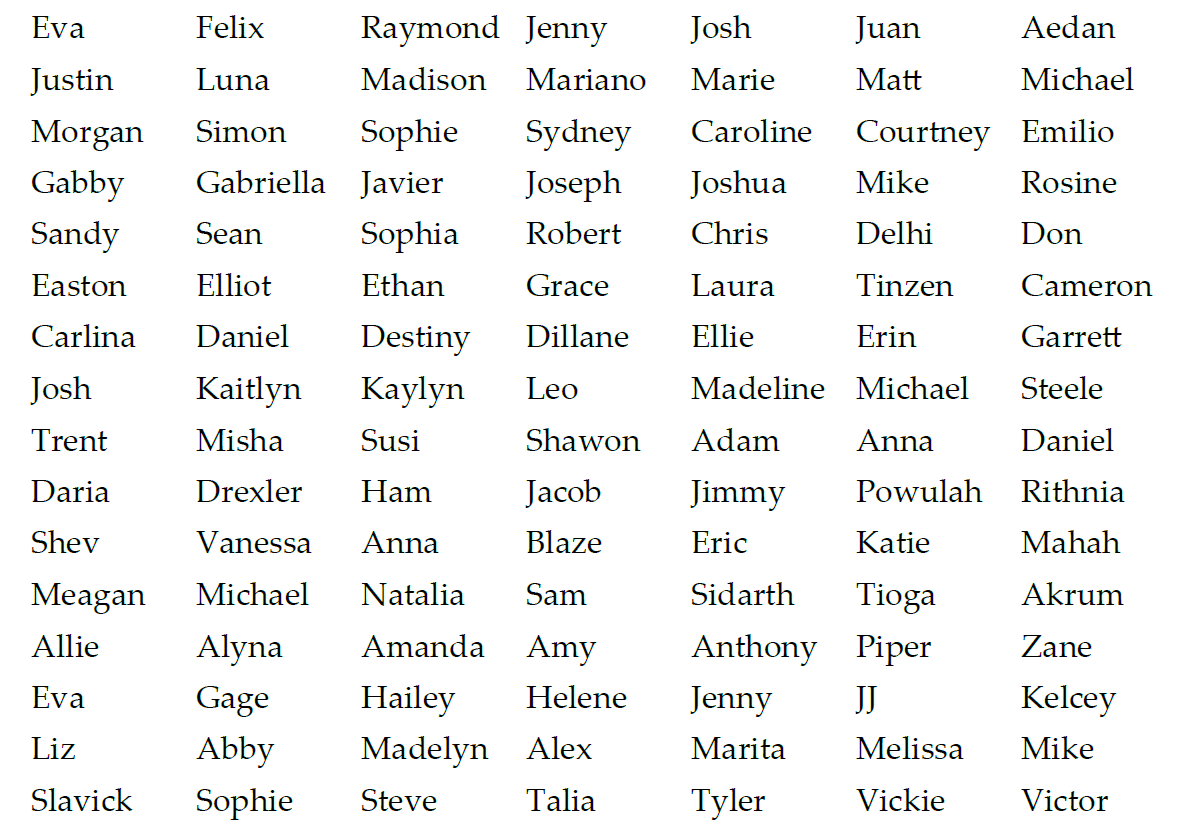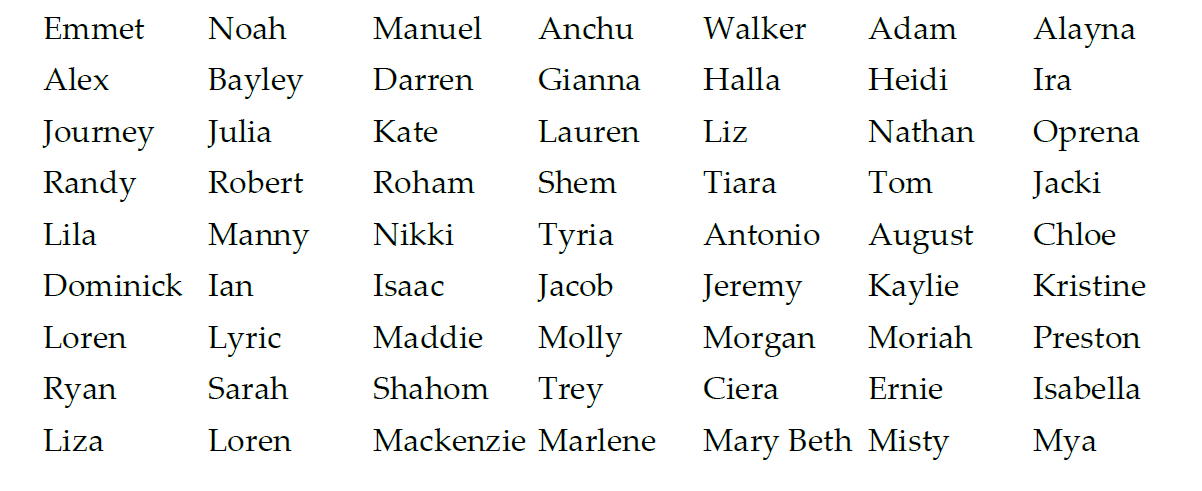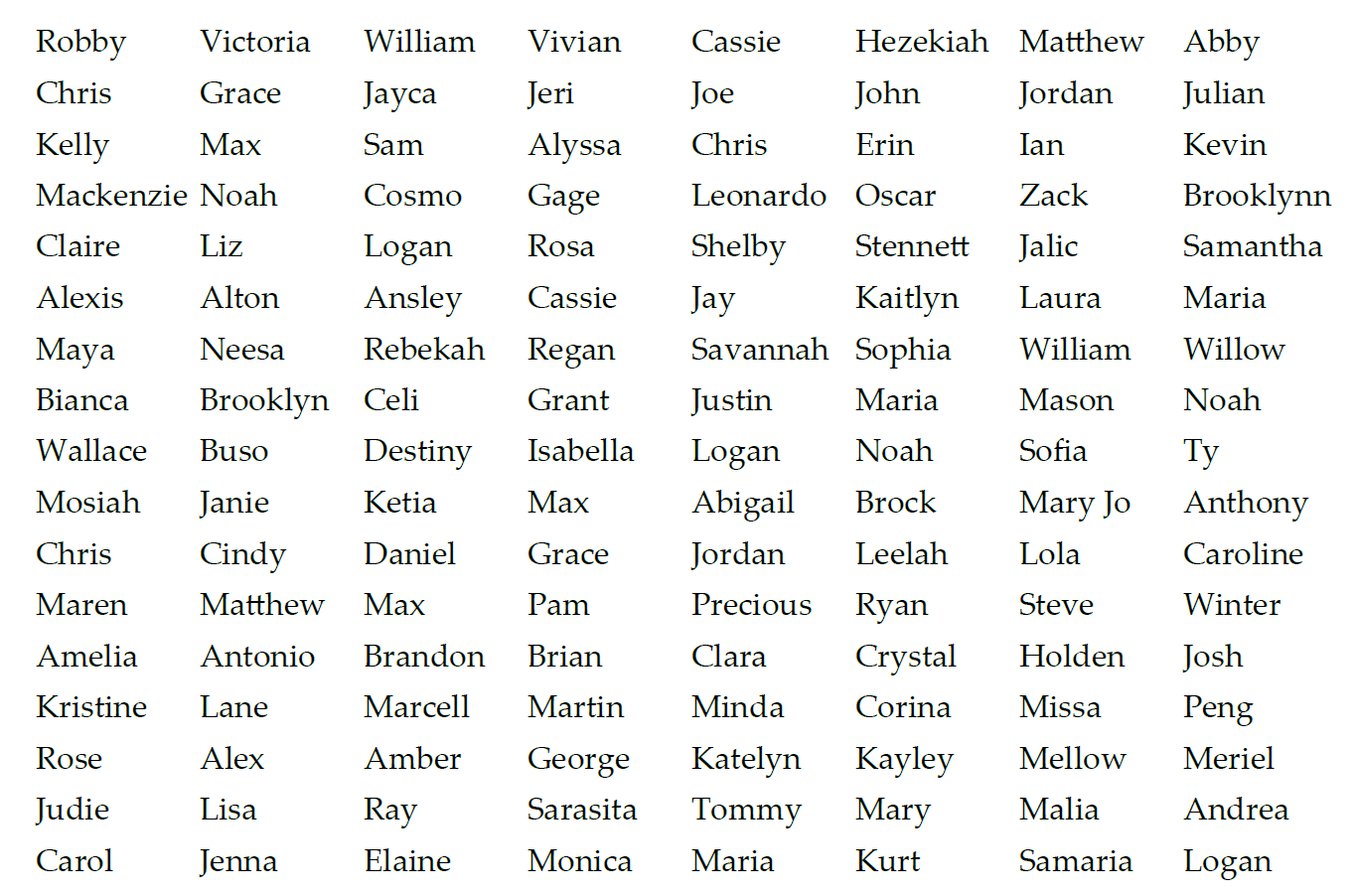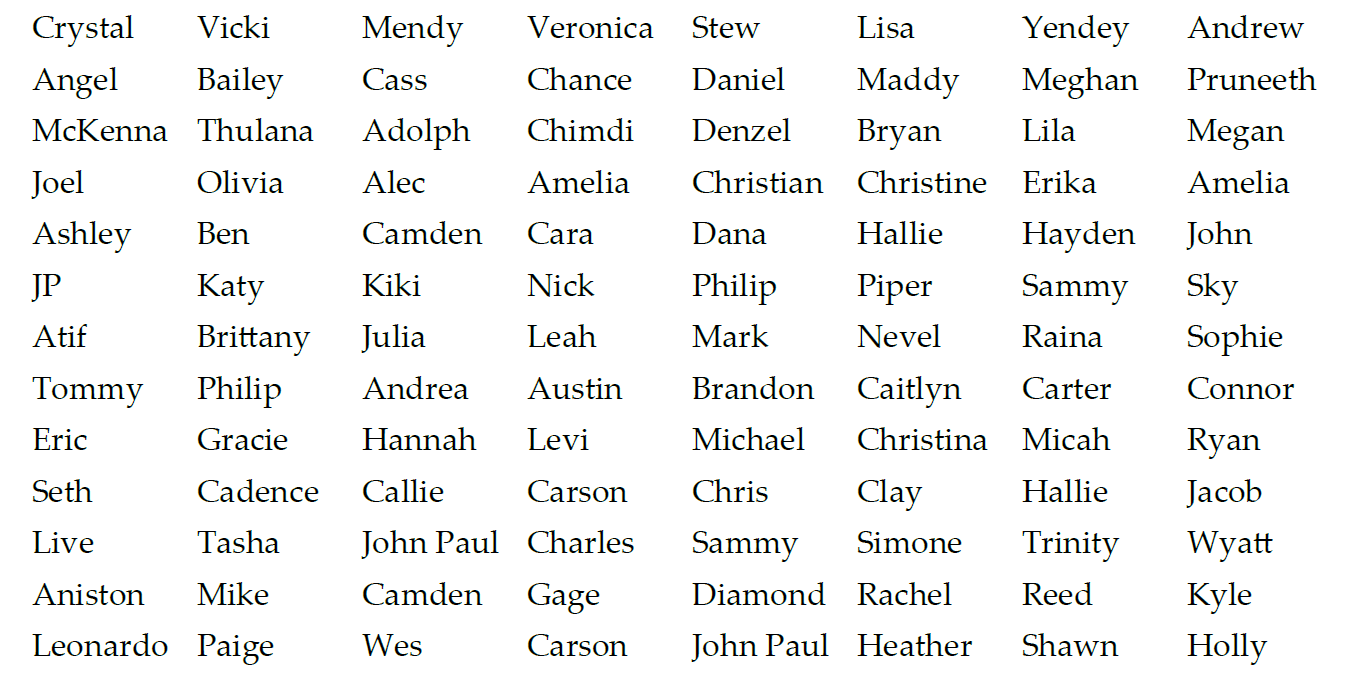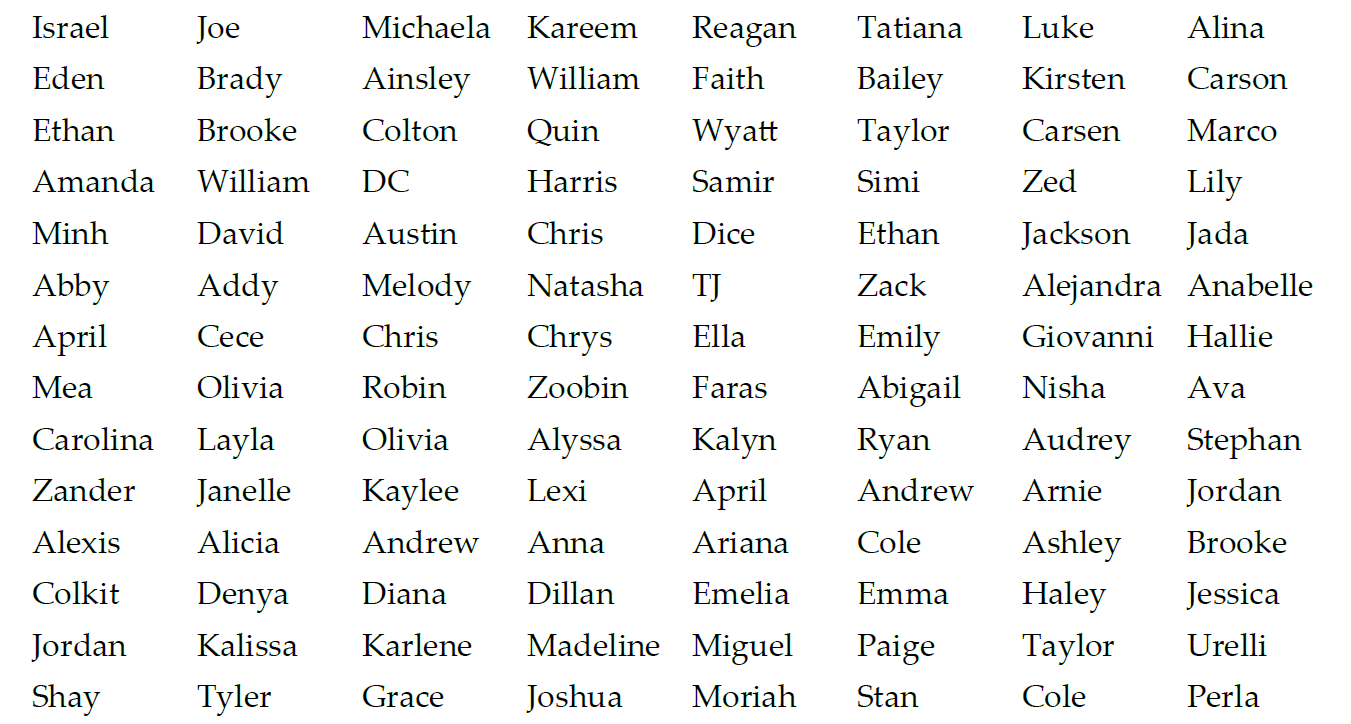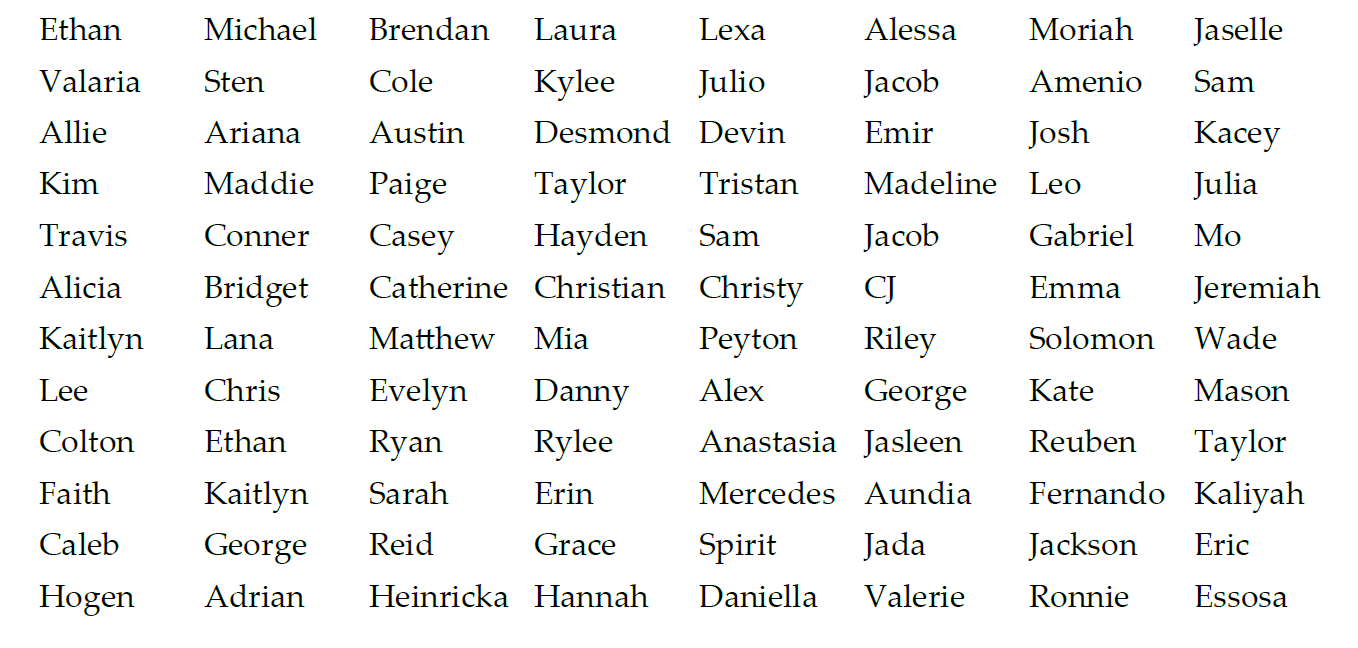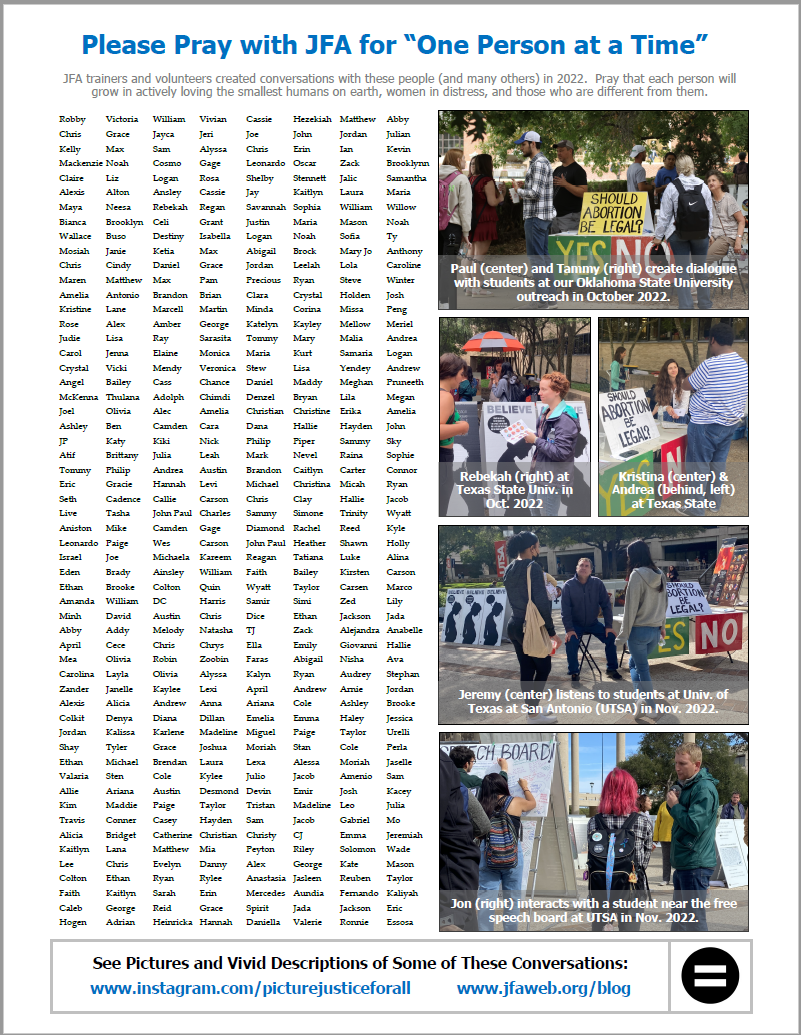April 2023 Impact Report
In this Impact Report compiled by Rebekah Dyer, we share pictures from recent events, along with brief conversation reflections from Rebekah and two other JFA trainers, Kaitlyn and Andrea. In January, February, and March, we conducted outreach on 17 days at nine campuses in six states: CSU Fullerton (CA), Palomar College (CA), Univ. of Arizona (AZ), Univ. of Texas at Austin (TX), Texas State (TX), Univ. of Cincinnati (OH), Univ. of Texas at San Antonio (TX), Wichita State (KS), and Newman Univ. (KS). Thank you for partnering with us financially and for praying for our work. -- Steve Wagner, Executive Director
CSU Fullerton (CA) — Jan. 2023 — Jon (left) and Rebekah (right) interact with students during our first outreach event of the year.
Experiencing the Unexpected
Univ. of Arizona (AZ) — Feb. 2023 — Paul (blue sweatshirt) talks to students near the JFA poll table. (Also visible in background: Kristina and Rebekah)
“Have you had a lot of conversations about abortion before, and, if so, how have they gone for you?” I often ask this question on campus, and people’s answers give me important background information about their experiences talking about abortion. At the University of New Mexico, I met two students who were reluctant to talk to me because they had had such bad experiences voicing their opinions in the past. One young woman told me she felt like she was shaking at some point in our conversation. Another student told me he had never heard a good argument for the pro-life position, and he was only familiar with people yelling and holding signs. I asked him if he’d be open to hearing a good argument and when he said yes, I presented the equal rights argument. At the end of our conversations, both of these students thanked me for the conversation and how I treated them.
I was grateful for the opportunity to give these students a good experience talking about abortion. I hope it will help them to be more open to the next person God places in their path to continue the dialogue. Conversations about abortion are important because people inside and outside the womb matter so much. – Rebekah Dyer
Loving Those Who Differ
Univ. of Texas at San Antonio (TX) — Feb. 2023 — Gavin (yellow) logged lots of conversations during eight days of JFA outreach from January to March. You can join us for a mission trip, too: www.jfaweb.org/mission-trips.
While the JFA team was doing outreach at Texas State in San Marcos, a young man I’ll call Mark stopped by. Mark was reserved and quiet. When I asked him if he had thoughts about abortion he said he didn’t want to get into it. I nodded and began asking questions about his life to show him I cared. I asked what he was studying and where he was from, if he had a community on campus, and what his dreams were for the future. Through these questions I learned that he is intelligent and thoughtful but very shy and deeply lonely. I also gained his trust. Eventually we did begin discussing abortion. We also talked for a long time about Christianity and the gospel. Early in our conversation Mark seemed tentative, and I thought he might leave at any moment, but as I listened and asked questions he relaxed, and we talked for over two hours. It became clear that he was starved for conversation and compassion. Many of us struggle to start conversations because we assume people don’t want to have this kind of conversation. Over and over I have found the opposite to be true. Like Mark, many people in our culture are deeply lonely and would love to have a real conversation with someone who cares. – Kaitlyn Donihue
An Open Heart Towards the Gospel
Univ. of Cincinnati (OH) — Feb. 2023 — Mary (grey, facing away from camera) and Kaitlyn (right) engage students at our outreach event in Cincinnati.
Univ. of New Mexico (NM) — Mar. 2023 — JFA trainers Jeremy (left, red) and Andrea (center) interact with students in Albuquerque.
At the University of New Mexico outreach, Isaac was standing at our kiosk looking at the images of the unborn. I approached him and asked if he had any thoughts about abortion. Isaac said he believed that abortion should be legal, especially when a child is not wanted. I asked him questions, and we talked through the “Trot out the Toddler” analogy, as well as evidence from biology showing that the unborn is a human being. I then shared images of abortion with him. As the conversation progressed, Isaac agreed that the unborn are living human beings. I challenged him by saying, “We just agreed that the unborn are living human beings, so if that is true, would you agree the unborn deserves equal rights, at least in the basic right to life?” Indicating that his heart and mind were changing, he responded, “Yes, I would agree with that.” We then proceeded to have an extensive conversation about his spiritual beliefs. I had the opportunity to share the hope of the gospel with him, and I gave him the gospel of John. He was excited to read it and told me that he was going to journal about it afterwards. – Andrea Thenhaus
Do you receive email updates from JFA’s prayer team coordinator, Mary Biegler, with specific prayer requests for upcoming events? See www.jfaweb.org/pray to sign up.









